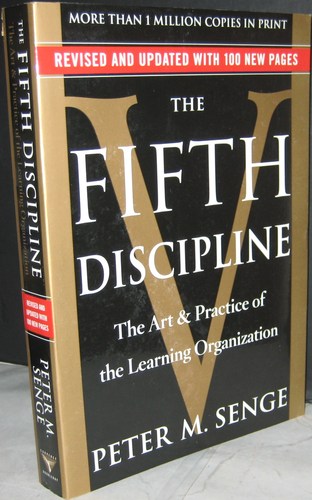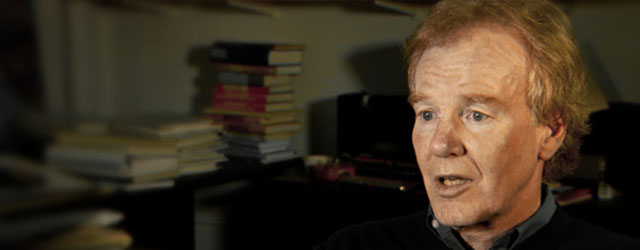Vincent and Peter Senge:
Self-Care for Leaders in a Stressful World
Though they lived some 400 years apart in time, St. Vincent de Paul and contemporary leadership guru Peter Senge offer similar advice for leaders in coping with stress. This post summarizes a few of their insights, and offers links to practical tools to help you begin to implement their advice in your own life.
Peter Senge on “Personal Mastery” and “Truth-Telling”
In his book, The Fifth Discipline: The Art & Practice of The Learning Organization, Senge uses the term “personal mastery” to describe the discipline of personal growth and learning. For Senge, personal mastery means “approaching one’s life as a creative work, living life from a creative as opposed to reactive viewpoint.”
As a discipline, personal mastery involves a continual process with two movements, one focused inward and the other focused outward. The inward movement involves the discipline of “continually clarifying what is important to us.” This process of clarification includes examining and articulating our vision, values, and ideals, as well as our understanding of our own unique purpose for our work and life.
The second movement, involves “continually learning to see reality more clearly.” Seeing reality more clearly allows us to correctly align our sense of purpose with what our organization and our world needs (141).
Truth-Telling in the Growth Process
According to Senge, both of these movements in achieving personal mastery require a “simple yet profound” strategy: radical truth-telling Radical truth-telling begins with engaging in telling the truth to ourselves about our vision, values, ideals, and purpose – and admitting how far we may have allowed ourselves to wander from the truth of our own vision, values, ideals and purpose. Senge says this about the importance of telling the truth:
Commitment to the truth…means a relentless willingness to root out the ways we limit or deceive ourselves from seeing what is, and to continually challenge our theories of why things are the way they are. It means continually broadening our awareness….It also means continually deepening our understanding of the structures underlying current events (159).
The Role of Truth in Stress
Getting at what is and is not truth for us is one way of getting at the deeper causes of anxiety and stress in our lives.
Senge talks about the role of “negative visions” in creating stress. His research has led him to conclude that most adults, asked what they want, “will say what they want to get rid of.” They might, for example, say they want to get rid of their present job and to have a different one, and yet are unable to say what job they really want. Other examples might include wanting a different relationship, a different house, or fewer bills. Senge believes negative visioning becomes a coping strategy in most people’s lives after years “of filling in, of coping, of problem solving.”
An alternative to negative visioning, Senge suggests, can be observed in people with high levels of personal mastery, These people have learned to focus on their “ultimate intrinsic desires.” Senge calls this skill the “cornerstone” of personal mastery. It is closely tied to identifying your true purpose in life, and also to the ability to experience happiness. “Happiness may be most directly a result of living consistently with your purpose.”
To summarize, Senge suggests we approach self-care by managing the stress-producing tension naturally arising from a conflict between that which we truly desire and the truth of our current reality. To reduce the tension and stress caused by this conflice, we need to name and stay true to our values, ideals and purpose. We also need to be honest with ourselves about “seeing reality more and more as it is”
 Vincent de Paul’s Take on “Truth-Telling” and Burn-out
Vincent de Paul’s Take on “Truth-Telling” and Burn-out
St.Vincent de Paul articulated advice similar to that of Peter Senge to members of the Congregation of the Mission and the Daughters of Charity in his description of the virtues they must develop to persevere in their work to serve the poor. Scholars tell us that Vincent spoke and wrote of five virtues which he articulated in the language and concepts of his time. One of these virtues is “simplicity.” Remarkably, Vincent interprets the virtue of simplicity foremost to mean “speaking the truth…saying things as they are.” He wrote that simplicity “means giving a straightforward opinion about things in the way we honestly see them, without needless reservations” (Maloney. 163).
For Vincent, developing the practice of seeing things honestly was critical to the way he operated in the service of his vision and mission to the poor. Hugh F. O’Donnell, C.M., tells us that Vincent looked to his current reality, his direct experience, for discerning the will of God in his work. He writes:
“Vincent began with experience: his connection with reality, his contact with God. It was the vehicle of God’s will for him. ‘Let us do the good that presents itself,’ he urged. He was skeptical of grand ideas and schemes that did not rise out of events and circumstances. Events called him to respond and showed him the way in which God was leading him” (O’Donnell. 31).
Vincent also spoke about vision and purpose, but for that he used the virtue “zeal.” Maloney says that for Vincent, zeal “is love on fire.” Vincent himself wrote: “Charity when it dwells in a soul takes complete possession of all its powers. It never rests. It is a fire that acts ceaselessly.”
How to Avoid Burn-out
Yet, Vincent also was concerned that this fire of charity not lead to what we today would call “burn-out.” This Vincent termed “indiscreet zeal.” According to Maloney, Vincent cautioned those offering service to the poor and sick against such expressions of indiscreet zeal as overwork, unnecessarily exposing oneself or others to danger, being rigorous and overbearing with people, and remaining too long with one sick person to the prejudice of another (Maloney, 46-47).
In a letter to his collaborator in founding the Daughters of Charity, Louise de Marillac, Vincent wrote: “Be very careful to conserve it (your health) for the love of the Lord and his poor members and be careful not to do too much. It is a ruse of the devil by which he deceives good souls where he incites them to do more than they can in order that they might not be able to do anything.”
![]() Together, Peter Senge and Vincent de Paul recommend we avoid creating our own stress by making sure on a daily basis that:
Together, Peter Senge and Vincent de Paul recommend we avoid creating our own stress by making sure on a daily basis that:
- we connect to the passion of our vision, values, mission and purpose;
- we see what is real about the present moment;
- we tell the truth to ourselves and others.
Reflection Questions
What vision of the world inspires you? How does this vision make you “come alive?”
What values underlie this vision?
What creates the gap between this vision and the present reality?
How do you feel standing in this gap?
What steps can you take to be more effective in the present moment?
What step can you commit to today?
Resources
Leider, Richard J. “The Ultimate Leadership Task: Self-Leadership” in The Leader of the Future, ed. by Frances Hesselbein, Marshall Goldsmith, and Richard Beckhard. Jossey-Bass. 1996. 189-198
Maloney, Robert P., C.M., The Way of Vincent de Paul: A Contemporary Spirituality in the Service of the Poor. New City Press. Fifth Printing. 2003. 38., 163
O’Donnell, Hugh F. , C.M., “Vincent de Paul: His Life and Way” in Vincent de Paul and Louise de Marillac: Rules, Conferences and Writings. Paulist Press. 1995. 31.
Senge, Peter, The Fifth Discipline: The Art & Practice of The Learning Organization. NY: Currency Doubleday, 1990.139-173.
Edited by Patricia M. Bombard, BVM, D.Min., Director, Vincent on Leadership: The Hay Project, DePaul University, Chicago, IL USA



